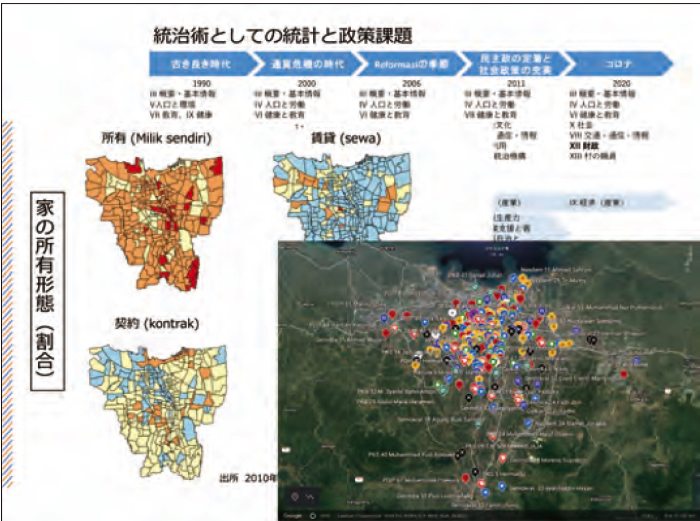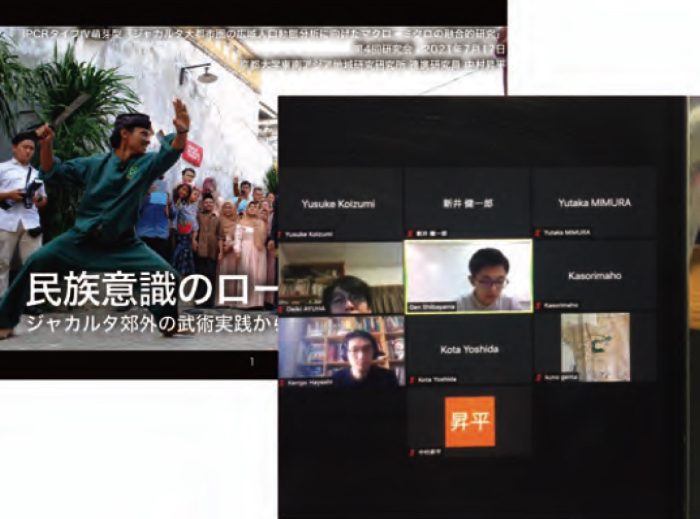- Project Leader : Arai Kenichirou (Asia University, Faculty of Urban Innovation)
- Collaborators : Hayashi Kengo (The University of Tokyo, Institute of Industrial Science)
- : Mimura Yutaka (Research Institute for Humanity and Nature, RIHN Center)
- : Koizumi Yusuke (University of Shizuoka, Graduate School of International Relations)
- : Ayuha Daiki (The University of Tokyo, Graduate School of Arts and Sciences)
- : Yoshida Kota (The University of Tokyo, Graduate School of Arts and Sciences)
- : Yamaguchi Motoki (Kyoto University, Graduate School of Asian and African Area Studies)
- : Kozan Osamu (Kyoto University, Center for Southeast Asian Studies)
Outline of Research
This study aims to clarify, based on both micro and macro perspectives, the demographic dynamics and related socio-spatial changes in the Jakarta metropolitan area. Focusing on the area’s rapid suburbanization (urban sprawl) and associated demographic changes, we adopt a multi-scale approach by employing a micro-scale analysis based on intensive field research together with a macro-scale analysis based on statistical data. We also further develop our unique research framework, which is based on a combined micro-macro perspective.
Description
This joint research project aims to clarify demographic dynamics and related socio-spatial changes in the Jakarta metropolitan area by combining macro analysis of socio-economic statistical data with the micro analysis provided by anthropological and sociological research.
Although scholars have acknowledged the importance of combining macro and micro perspectives, a solid methodology has thus far not been established in Southeast Asian urban studies. The study analyzes demographic and geographic data using informatics and a Geographic Information System. The research team includes anthropologists and sociologists with first-hand experience of fieldwork in large cities in Indonesia who will be involved in the entire analytical process of statistical data (including the selection of perspective, problematics, identification of relevant variables and interpretation of findings). We hope that our research will be valuable to the broader urban planning process and policies of the Jakarta metropolitan area, and potentially present a model for other metropolitan areas in Southeast Asia.
In FY2020, our team successfully applied for a Kakenhi (Grant in Aid for Scientific Research) C, securing funds for further research and analysis in the coming three years. Our priority for FY 2021 is to input and begin examining data from Indonesia’s Village Potential Statistics (Podes), and identifying critical variables for understanding the demographic dynamics of contemporary Jakarta’s metropolitan area. We are also planning to contribute several papers to academic journals, including the Japanese Journal of Southeast Asian Studies.


